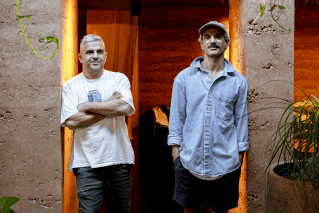Google it: What becomes of our smartest people when computers start teaching us?
Our children are the ones who will benefit most from the rapid advance of artificial intelligence (AI). So why are so many of our leaders afraid to allow students of all ages take advantage of it? David Fagan investigates


The advent of Artificial Intelligence is changing the education battlefield at staggering speed. (Image: HP)
Blink these days and the world changes around you. That’s why we pay smart people to anticipate change and prepare us for it.
So where have they been while artificial intelligence has moved from a nerd fantasy to a stark reality confronting, for a start, the education sector which is completely unprepared for a technology that can turn out an assignment in minutes on pretty well any topic a teacher assigns?
Chat-GPT, to listen to school and university educators, is a complete surprise and disruption to how learning is tested and assessed. The technology, if you haven’t focussed on it, is Google on steroids, able to scour the internet to produce detailed responses.
Education ministers in every state but South Australia have responded by banning it from the classroom. Universities, as they wake from their spring and summer break, are working out what to do about it.
And in the meantime, the world’s digital giants are battling it out for supremacy in the world of AI which is the next big leap forward in technology. The prize for them is the pot of advertising gold that goes to the world’s best search engine. Until now, that has been Google but Microsoft’s partnership with OpenAI, the Californian startup that developed ChatGPT makes it the challenger.
Google’s position hasn’t been helped by its rush to demonstrate its own technology last week which saw it produce a wrong answer to a question on space exploration. Ouch! The market wiped $100 billion off its value for that snafu.
The AI battle will be fought among giants for the next few years and it’s inevitable the technology will get better, be used more and will become as much a part of our lives as that great disrupter, the pocket calculator (which was even in the classroom when I went to school).
And in the meantime, the ante-diluvian educational leaders of this country intend to ban it from the classroom. But please note, it won’t be banned from every classroom – only state school classrooms, meaning many private school students will learn how to assimilate the technology of the next quarter century into their work while state students lag.
(And this is an unfortunately familiar story. During Covid, the well resourced and innovative private schools were quickly able to take classes online while many state schools were left scratching their heads. I know one teacher who could only reach students by hand-delivering photocopied notes to their letterboxes.)
Ignorance of technology perpetuates inequity. There is no justification for educators to be complicit in this – but this is exactly what they are doing by proposing to ban ChatGPT from classrooms.
Instead, they should be dragging in the best and brightest educators and researchers to identify how this technology can be used to build on students’ skills. If they lift the lid, they will discover that, as good as the technology now is, it will be limited by what it can access – and the thing it cannot access is the human reaction to information, the power to analyse and react at an emotional level. But, on facts and relaying others’ opinions, it will be almost unbeatable.
They will also discover that there is a depth of understanding among Australian researchers about this technology and where it’s heading but, as is often the case, the depth is exceeded by a shallowness in sharing it. This is an ongoing problem with the Australian research community which needs more than artificial intelligence to resolve.
Hovering over all this is a re-emergence about what technology means to the future of work, an issue that has slipped off the agenda while the world’s workforce adapts to the changes wrought by Covid.
There can be no doubt that new technologies will cost jobs (and AI spreads the loss into the white-collar sectors). But other developments will create jobs. For instance, can a chatbot manage the rewiring and repairing needed to make hundreds of cities and millions of homes more energy efficient? I doubt it. We’ll need humans for that but, hopefully skilled humans educated in the latest technology, not blocked from it by ministers with no idea and less imagination.
(David Fagan is the author of Wake Up – the Nine H#shtags of Digital Disruption – UQP, 2017)












